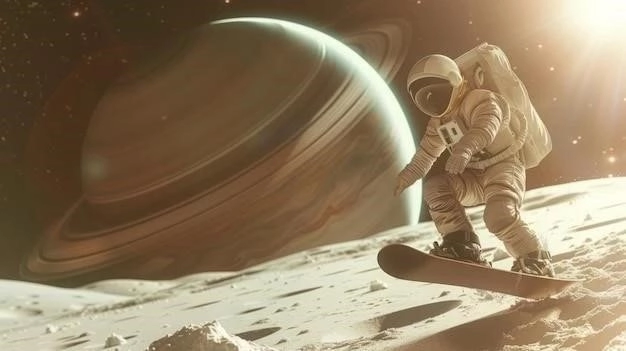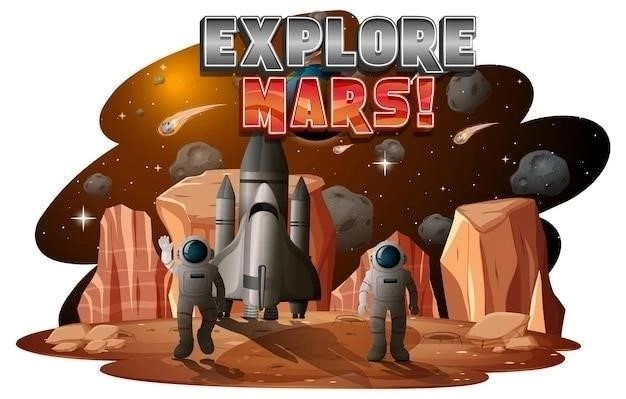Exploration, the act of venturing into the unknown, is an intrinsic element of the human spirit. From the earliest migrations out of Africa to the latest probes sent to distant planets, our history is inextricably linked with the desire to discover, chart, and understand the world around us. This article embarks on a journey through time, highlighting key milestones in the history of exploration, from ancient voyages to the modern age of space travel.

Ancient Voyages: Setting Sail into the Unknown
The earliest explorations were driven by necessity, a quest for survival and resources. As early humans spread across the globe, they encountered vast oceans, towering mountain ranges, and scorching deserts. These natural barriers tested their ingenuity and resilience, shaping their cultures and leaving an indelible mark on human history.
Polynesian Seafaring: Navigating by the Stars
Among the most remarkable feats of ancient exploration were the voyages of the Polynesians. These intrepid seafarers ventured across the vast expanse of the Pacific Ocean, navigating by the stars, wind, and wave patterns. They colonized islands scattered across a region twice the size of the continental United States, from Hawaii in the north to New Zealand in the south, demonstrating an unparalleled mastery of maritime technology and navigation.
The Phoenicians: Masters of the Mediterranean
In the Mediterranean, the Phoenicians, a seafaring civilization based in present-day Lebanon, established trade routes that spanned the entire basin. They were skilled shipbuilders and navigators, known for their biremes and triremes, warships powered by rows of oarsmen. The Phoenicians voyages facilitated cultural exchange and the spread of knowledge, laying the groundwork for future exploration in the region.
The Age of Exploration: Expanding Horizons
The late 15th and 16th centuries witnessed a period of unprecedented exploration, driven by a combination of economic, political, and religious motives. European powers, eager to find new trade routes to the East and fueled by the spirit of the Renaissance, launched expeditions that would forever change the course of history. This era, known as the Age of Exploration, marked a turning point in human history, leading to the discovery of new continents, the rise of global trade, and the exchange of cultures and ideas on an unprecedented scale.
Portuguese Exploration: Charting a New Course to the East
At the forefront of this era of exploration was Portugal, a small but ambitious nation with a long maritime tradition. Under the patronage of Prince Henry the Navigator, Portuguese explorers embarked on a series of voyages down the coast of Africa, seeking a sea route to the lucrative spice trade of the East. Bartolomeu Dias rounded the Cape of Good Hope in 1488, proving that it was possible to sail around Africa to reach the Indian Ocean. Vasco da Gama built on Diass achievement, completing the first sea voyage from Europe to India in 1498, ushering in a new era of global trade and Portuguese dominance in the East.
Christopher Columbus: A World Transformed
While the Portuguese were charting a course to the East, Christopher Columbus, an Italian explorer sailing under the Spanish flag, set his sights westward. Believing that he could reach Asia by sailing west across the Atlantic Ocean, Columbus embarked on a voyage that would inadvertently lead to the European discovery of the Americas. His landing in the Bahamas in 1492 marked a pivotal moment in history, opening up a new world for exploration, colonization, and exploitation.
Ferdinand Magellan: Circumnavigating the Globe
The Age of Exploration reached its zenith with the first circumnavigation of the globe, led by Portuguese explorer Ferdinand Magellan. Setting sail from Spain in 1519, Magellans expedition faced numerous challenges, including treacherous seas, hostile natives, and dwindling supplies. Magellan himself was killed in the Philippines in 1521, but his crew, led by Juan Sebastián Elcano, completed the journey, returning to Spain in 1522. This epic voyage proved definitively that the Earth was round and opened up new trade routes that connected the world as never before.
The Enlightenment and Beyond: Scientific Exploration
The Age of Exploration was followed by a period of scientific exploration, fueled by the Enlightenments emphasis on reason, observation, and the scientific method. Explorers were no longer driven solely by the desire for wealth or conquest but also by the pursuit of knowledge and the advancement of science.
Captain James Cook: Charting the Pacific
One of the most influential explorers of this era was Captain James Cook, a British navigator and cartographer who led three voyages to the Pacific Ocean between 1768 and 1779. Cooks expeditions were groundbreaking, not only for their geographical discoveries, including the charting of the eastern coastline of Australia and the Hawaiian Islands, but also for their scientific rigor. Cooks voyages revolutionized European understanding of the Pacific, its peoples, and its natural history;
The Northwest Passage: A Perilous Quest
The search for the Northwest Passage, a sea route through the Arctic Ocean connecting the Atlantic and Pacific Oceans, captivated explorers for centuries. Many expeditions were mounted, often facing treacherous ice conditions, scurvy, and starvation. While the Northwest Passage was eventually navigated, its treacherous conditions made it impractical for regular shipping.

The 20th Century and Beyond: Reaching New Heights
The 20th century witnessed a dramatic acceleration in the pace of exploration٫ driven by technological advancements and a renewed desire to push the boundaries of human achievement. The focus shifted from exploring the Earths surface to exploring its depths٫ its skies٫ and eventually٫ space itself.
Reaching the Poles: Conquering Earths Extremes
The race to reach the North and South Poles captivated the world in the early 20th century. Roald Amundsen, a Norwegian explorer, led the first expedition to reach the South Pole in 1911, followed shortly by Robert Falcon Scotts British expedition. These expeditions demonstrated the limits of human endurance and the allure of conquering Earths most extreme environments.
The Space Race: A Giant Leap for Mankind
The latter half of the 20th century witnessed the dawn of the Space Age, a period of intense competition between the United States and the Soviet Union to achieve supremacy in space exploration. The Soviet Union launched Sputnik, the first artificial satellite, in 1957, followed by Yuri Gagarin, the first human in space, in 1961. These achievements spurred the United States to accelerate its space program, culminating in the Apollo 11 mission in 1969, which saw Neil Armstrong become the first human to walk on the moon. The Space Race led to rapid advancements in rocketry, telecommunications, and materials science, leaving an indelible mark on human history and inspiring generations to come.

The Future of Exploration
As we enter the 21st century, the spirit of exploration remains as strong as ever. With the Earth largely mapped and explored, the frontiers of exploration have shifted once again, this time to the depths of the ocean, the far reaches of space, and the microscopic world within our own bodies; Robotic probes are venturing further into our solar system, sending back data that deepens our understanding of the cosmos. Meanwhile, advances in biotechnology are allowing us to explore the inner workings of life itself, with the potential to unlock new cures for diseases and enhance human capabilities.
The history of exploration is a testament to the indomitable spirit of humanity, our insatiable curiosity, and our relentless pursuit of knowledge. From the earliest migrations out of Africa to the latest probes sent to distant planets, exploration has shaped our world, expanded our horizons, and inspired generations to push the boundaries of whats possible. As we stand on the cusp of new discoveries, one thing remains certain: the journey of exploration is far from over.
Modern Exploration: Beyond Terrestrial Boundaries
The 21st century has ushered in an era of exploration that transcends traditional geographical boundaries. With Earth extensively charted٫ contemporary explorers are venturing into uncharted territories٫ pushing the limits of human ingenuity and scientific understanding. This new age of discovery is characterized by a multifaceted approach٫ encompassing the depths of our oceans٫ the vast expanse of space٫ and the intricate complexities of the microscopic world.
Ocean Exploration: Unveiling the Abyss
Covering over 70% of Earths surface, the oceans remain largely unexplored, harboring an estimated 91% of marine species yet to be discovered. Advancements in submersible technology and remotely operated vehicles (ROVs) are enabling us to plumb the depths of this watery realm, revealing a breathtaking array of life and geological formations. Hydrothermal vents, teeming with chemosynthetic life, and vast underwater mountain ranges are just a glimpse of the hidden wonders being uncovered. Understanding the oceans intricate ecosystems, their role in regulating climate, and their potential for resources is crucial for the future of our planet.
Space Exploration: Reaching for the Stars
The allure of space, with its promise of unraveling the mysteries of the universe and discovering life beyond Earth, continues to captivate humanity. International collaboration has become a cornerstone of space exploration, with agencies like NASA, ESA, and Roscosmos joining forces on ambitious missions. The International Space Station (ISS) stands as a testament to this global endeavor, serving as a platform for scientific research and a stepping stone for future missions to the Moon, Mars, and beyond. Robotic probes are venturing further into our solar system, sending back invaluable data from planets, moons, and asteroids, expanding our understanding of planetary formation and the potential for life elsewhere.
Inner Space: Exploring the Microscopic Frontier
While we look outward to the stars, a universe of discovery awaits within us. Advances in genomics, molecular biology, and imaging techniques are providing unprecedented insights into the intricate workings of cells, genes, and the human brain. The Human Genome Project, completed in 2003, revolutionized our understanding of human biology, paving the way for personalized medicine and novel treatments for diseases. The burgeoning field of synthetic biology holds the potential to engineer organisms with specific functions, offering solutions for challenges ranging from disease eradication to environmental remediation. Exploring the microscopic frontier is not only advancing scientific knowledge but also prompting profound ethical and philosophical questions about the nature of life and our place in the universe.
The Enduring Spirit of Exploration
The history of exploration is a testament to the indomitable human spirit, our insatiable curiosity, and our unwavering determination to push the boundaries of knowledge. From the earliest seafarers navigating by the stars to modern-day explorers probing the depths of the cosmos, the quest for discovery is deeply ingrained in our nature. As technology continues to evolve, we can anticipate even more awe-inspiring discoveries and groundbreaking advancements. The spirit of exploration, with its power to inspire, innovate, and unite humanity in a shared sense of wonder, will undoubtedly continue to shape our future and illuminate the path ahead.
The Next Frontier: Exploration in the 21st Century and Beyond
While the history of exploration is rich with tales of daring voyages and groundbreaking discoveries, the 21st century presents a new paradigm – one where the frontiers are no longer confined to terrestrial maps, but extend to the depths of our oceans, the vastness of space, and the intricate landscapes within ourselves. This new era demands not just courage and ambition, but a collaborative, interdisciplinary approach, harnessing technological advancements to unravel the universes most profound mysteries.
Delving Deeper: The Untapped Potential of the Ocean
The Earths oceans, representing over 70% of its surface, remain largely unexplored, holding vast potential for scientific discovery and resource management. The challenges of pressure, darkness, and the sheer scale of the deep ocean necessitate innovative approaches.
- Autonomous Underwater Vehicles (AUVs): These sophisticated robots are capable of independently surveying vast swathes of the ocean floor, mapping topography, identifying geological formations, and collecting biological samples. Equipped with advanced sensors and imaging systems, AUVs are revolutionizing our understanding of hydrothermal vents, underwater volcanoes, and the complex ecosystems they support.
- Bioprospecting: The oceans biodiversity holds immense promise for pharmaceutical and biotechnological advancements. Exploration efforts are increasingly focused on bioprospecting – the search for marine organisms with unique properties that can be harnessed for new medicines, biomaterials, and industrial applications.
- Sustainable Resource Management: As terrestrial resources dwindle, the oceans potential as a source of food, energy, and minerals becomes increasingly significant. Exploration plays a crucial role in identifying and assessing these resources, developing sustainable extraction methods, and understanding the potential environmental impacts.
Beyond Earths Embrace: The Ongoing Quest for Knowledge
Space exploration, once driven by geopolitical rivalry, has evolved into a collaborative endeavor, uniting nations in the pursuit of scientific knowledge and the potential for expanding humanitys reach beyond Earth.
- The James Webb Space Telescope (JWST): Launched in 2021, the JWST represents a quantum leap in astronomy. Its powerful infrared capabilities are allowing us to peer deeper into the universe than ever before, observing the formation of the first galaxies, studying the atmospheres of exoplanets, and unlocking clues about the origins of the universe itself.
- Human Missions to Mars: The long-held ambition of sending humans to Mars is closer than ever. International collaborations are focusing on developing the necessary technologies, from advanced life support systems and radiation shielding to in-situ resource utilization, paving the way for humanitys first steps on another planet.
- Commercial Space Industry: The rise of private companies like SpaceX and Blue Origin is revolutionizing access to space, driving down costs and fostering innovation. This burgeoning industry is not only supporting scientific exploration but also opening up new possibilities for space tourism, resource extraction, and even the eventual colonization of other celestial bodies.
The Inner Universe: Unraveling the Complexities of Life
While we explore outward, a universe of discovery awaits within us. Advancements in genomics, neuroscience, and nanotechnology are providing unprecedented insights into the intricate workings of life itself.
- CRISPR-Cas9 Gene Editing: This revolutionary technology allows for precise modifications to DNA sequences, offering the potential to cure genetic diseases, enhance crop yields, and even alter the course of evolution itself. Ethical considerations surrounding this powerful tool are paramount and require careful consideration.
- Brain-Computer Interfaces (BCIs): BCIs are bridging the gap between the human brain and computers, allowing for direct communication and control. This technology holds transformative potential for individuals with disabilities, enabling them to regain mobility and interact with their environment in new ways. Furthermore, BCIs have the potential to enhance human cognition, memory, and sensory perception.
- Nanotechnology and Nanomedicine: Operating at the nanoscale, this field involves manipulating matter at the atomic and molecular level. In medicine, nanotechnology is paving the way for targeted drug delivery systems, early disease detection, and regenerative medicine, offering new hope for treating previously incurable diseases.
The spirit of exploration, intrinsic to human nature, continues to drive us to push the boundaries of knowledge and explore the unknown. As technology advances, so too will our capacity for discovery, unveiling a future filled with awe-inspiring revelations and profound advancements. The journey of exploration is far from over; it is, in many ways, just beginning.










